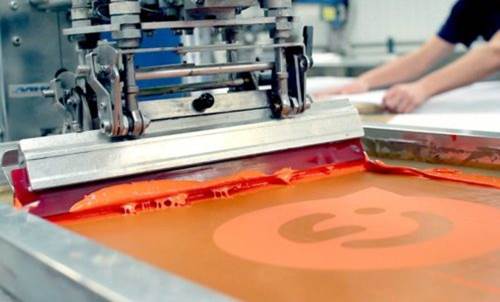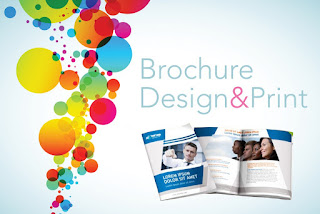T-SHIRT SCREEN PRINTING PROCESS
I. Create your Design
As
with any printing method, the primary step within the screen printing is to
make the artwork. This will be done using any design software available on the
market; however it's important that it's exported within the required final
format for screen printing (see subsequent step).
II.
Formatting
the File
Save
in vectors instead of pixels. Vectors are mathematical calculations that make
lines and figures on our monitors. Unlike working with pixels, you'll expand or
minimize these vector the maximum amount as you would like, without impacting
on the standard. Also as being saved as a vector, the artwork must even be
separated, with each color on a special layer. This is often because; within
the screen printing, each tone is printed employing a different screen.
Once
the planning is finished, the designer must create a version in solid black and
print it on to a transparent film. This is often done to dam off the sunshine.
III.
Cover
the screen with emulsion
Next,
the mesh screen is coated with a photosensitive emulsion. This creates the
green background you would possibly have seen on a screen printing screen.
This
is an easy process but must be done carefully to make sure that the liquid is
distributed evenly.
IV.
Let
the screen dry
For
the photosensitive emulsion to figure properly, it must be left to dry during a
cool, dark room. If the emulsion is exposed to light at the incorrect time, it
could jeopardise the complete process.
V.
Create
the stencil
Once
the screen is dry, the planning is placed on top of it and secured in situ
employing a soft adhesive. The screen is then placed under a robust source of
UV light. The parts of the screen that haven’t been covered with the planning
will harden, while the remainder will remain soft. In effect, the planning has
now been burned into the emulsion.
After
around an hour, when the screen is fully dry, the planning are often removed
employing a small brush and water. Negative components of the artwork are going
to be left.
The
screen is now able to use for printing.
VI.
Separating
the colors
If
your design features quite one colour, the method is repeated in order that
each color your design is separated into individual layers on different
screens. So, if your design has two colours, you’ll need two screens.
VII.
Apply
the planning
Now
the screen is prepared, it’s time to start out the particular printing. The T-shirt
Printing Dubai
is going to be placed within the screen printer, with the screen carefully
placed on top. The ink will then be placed on top of the screen and evenly
distributed across the surface employing a squeegee.
Again,
if the planning contains multiple colours, these processes are going to be
repeated for every colour.
VIII.
Heat
curing
Once
the T-shirt has been printed, it'll get to be heat cured to make sure that the
print is sealed and remains in situ. If you skip this step, the planning will
fade as soon because the T-shirt is washed.
During
curing, the ink must reach a particular temperature so as to successfully bond
with the material. Differing types of ink got to be cured at different
temperatures and for various lengths of your time.
Although
this might sound sort of a lengthy process, each screen is often used multiple
times, meaning the technique is really highly efficient and excellent for
larger orders.
T-shirt
printing for marketing is good but you should in extensive market research is
something that should not just focus on one t-t-shirt marketing strategy but
all marketing strategies.
Door
hanger is also an essential part of any outdoor advertising campaign. You can
canvas neighborhoods or use them at tradeshows. If you are implementing a local
marketing campaign, door hanger printing is a must. This is the cheapest marketing
method.
A business card is a small, printed,
usually credit-card-sized paper card that holds your business details, such as
name, contact details and brand logo. Business card printing is an essential part of your branding and should
act as a visual extension of your brand design.




Comments
Post a Comment